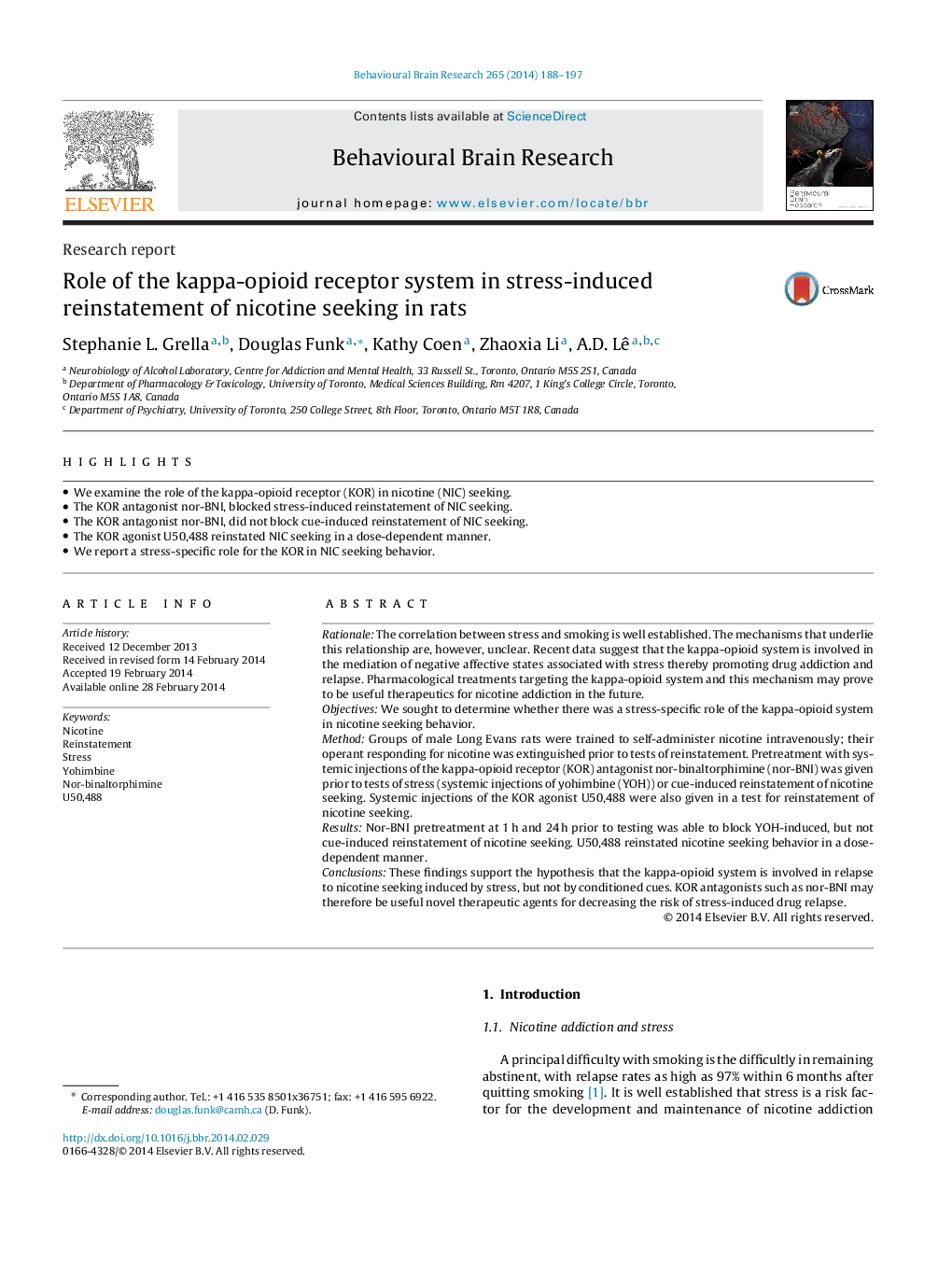| Article ID | Journal | Published Year | Pages | File Type |
|---|---|---|---|---|
| 6258315 | Behavioural Brain Research | 2014 | 10 Pages |
â¢We examine the role of the kappa-opioid receptor (KOR) in nicotine (NIC) seeking.â¢The KOR antagonist nor-BNI, blocked stress-induced reinstatement of NIC seeking.â¢The KOR antagonist nor-BNI, did not block cue-induced reinstatement of NIC seeking.â¢The KOR agonist U50,488 reinstated NIC seeking in a dose-dependent manner.â¢We report a stress-specific role for the KOR in NIC seeking behavior.
RationaleThe correlation between stress and smoking is well established. The mechanisms that underlie this relationship are, however, unclear. Recent data suggest that the kappa-opioid system is involved in the mediation of negative affective states associated with stress thereby promoting drug addiction and relapse. Pharmacological treatments targeting the kappa-opioid system and this mechanism may prove to be useful therapeutics for nicotine addiction in the future.ObjectivesWe sought to determine whether there was a stress-specific role of the kappa-opioid system in nicotine seeking behavior.MethodGroups of male Long Evans rats were trained to self-administer nicotine intravenously; their operant responding for nicotine was extinguished prior to tests of reinstatement. Pretreatment with systemic injections of the kappa-opioid receptor (KOR) antagonist nor-binaltorphimine (nor-BNI) was given prior to tests of stress (systemic injections of yohimbine (YOH)) or cue-induced reinstatement of nicotine seeking. Systemic injections of the KOR agonist U50,488 were also given in a test for reinstatement of nicotine seeking.ResultsNor-BNI pretreatment at 1Â h and 24Â h prior to testing was able to block YOH-induced, but not cue-induced reinstatement of nicotine seeking. U50,488 reinstated nicotine seeking behavior in a dose-dependent manner.ConclusionsThese findings support the hypothesis that the kappa-opioid system is involved in relapse to nicotine seeking induced by stress, but not by conditioned cues. KOR antagonists such as nor-BNI may therefore be useful novel therapeutic agents for decreasing the risk of stress-induced drug relapse.
